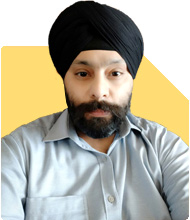My income is 100000 l and My child is 14 years. I am civil engineer working in private company.EMI is 40k Please suggest me what to do for future planning in and
My retirement planning, 55year now my age 36 years
We required After Retirement 50 Lacks
Ans: Firstly, congratulations on your income. Earning Rs. 1,00,000 per month is a significant achievement, especially in a private sector role as a civil engineer. This solid financial foundation is a great starting point for your future planning and retirement strategy.
You have mentioned your monthly EMI is Rs. 40,000. This means your discretionary income is Rs. 60,000 per month. With thoughtful planning, this amount can be effectively allocated towards securing your child's future and your retirement.
Child's Future Planning
Your child is currently 14 years old. In four years, he will likely be pursuing higher education. This is a critical period to ensure you have enough funds for his education. Education costs are rising, and having a solid plan will ensure you can meet these expenses without compromising other financial goals.
Assessing Education Costs
Higher education can be expensive. The first step is to estimate the total cost of your child’s education. This includes tuition fees, accommodation, books, and other related expenses. Let's assume the total cost to be around Rs. 20 lakhs.
Investment Strategy for Child's Education
To achieve this goal, you can start investing a part of your discretionary income. One of the most effective ways to grow your savings is through mutual funds. Regular mutual funds, when invested through a Certified Financial Planner (CFP), offer professional management and can potentially provide higher returns compared to direct funds.
By investing Rs. 20,000 monthly in a diversified mutual fund, you can accumulate the required amount in the next four years. Mutual funds have the advantage of professional management, diversified risk, and the potential for inflation-beating returns.
Importance of Starting Early
Starting your investment journey early allows your money more time to grow. The power of compounding works best when investments are made early and left to grow over time. This approach can significantly reduce the financial stress when your child is ready for higher education.
Retirement Planning
You are 36 years old and plan to retire at 55. That gives you 19 years to build a retirement corpus of Rs. 50 lakhs. Given your current income and EMI obligations, this goal is achievable with disciplined saving and investing.
Setting Clear Goals
The first step in retirement planning is to set clear goals. You need to estimate your post-retirement expenses. Assuming you need Rs. 50 lakhs at the time of retirement, we can plan backward to determine how much you need to save and invest monthly.
Mutual Funds for Retirement
Investing in mutual funds through a CFP can help you build a significant corpus. Actively managed funds, in particular, can potentially offer better returns due to professional fund management and active stock selection.
By investing Rs. 30,000 per month in a diversified equity mutual fund, you can steadily build your retirement corpus. The equity market, despite its volatility, has historically provided higher returns over the long term, making it suitable for long-term goals like retirement.
Diversification and Regular Review
Diversification is key to managing investment risks. By spreading your investments across different asset classes and sectors, you can minimize risks while maximizing returns. Regularly reviewing and rebalancing your portfolio with the help of a CFP ensures it stays aligned with your goals.
Managing EMI and Savings
With an EMI of Rs. 40,000, managing your savings and investments becomes crucial. Ensuring that you do not over-leverage yourself and maintaining a balance between your EMI obligations and savings is essential.
Budgeting and Financial Discipline
Creating a budget helps in tracking your income and expenses. Prioritize essential expenses and allocate the remaining towards savings and investments. Financial discipline is crucial in achieving your long-term goals.
Emergency Fund
Before diving deep into investments, it is wise to set aside an emergency fund. This fund should ideally cover 6-12 months of your expenses. This ensures that in case of any unexpected events, you have a financial cushion to fall back on without disrupting your investment plans.
Insurance Planning
Insurance is an integral part of financial planning. It protects your family against unforeseen events and ensures financial stability.
Life Insurance
If you have existing LIC or ULIP policies, it might be wise to evaluate their performance. Often, these policies do not provide adequate returns and may have high costs associated with them. Consider surrendering underperforming policies and reinvesting the proceeds into mutual funds through a CFP.
Term Insurance
A term insurance plan is a must-have. It provides a high coverage amount at a low premium, ensuring your family's financial security in your absence. Aim for a coverage amount that is at least 10-15 times your annual income.
Health Insurance
A comprehensive health insurance plan protects against medical emergencies. Ensure you have adequate coverage for yourself and your family. Rising medical costs can quickly deplete savings, making health insurance essential.
Tax Planning
Efficient tax planning helps in saving money which can be redirected towards investments.
Tax-saving Investments
Investments in tax-saving mutual funds (ELSS), PPF, and EPF not only provide tax benefits under Section 80C but also help in wealth creation. Consult with a CFP to choose the right mix of tax-saving instruments.
Utilizing Tax Deductions
Maximize the use of available tax deductions such as those under Section 80D for health insurance premiums and Section 24 for home loan interest. This reduces your taxable income and increases your savings.
Regular Monitoring and Adjustments
Financial planning is not a one-time activity. It requires regular monitoring and adjustments to stay on track.
Periodic Reviews
Regularly review your investment portfolio with a CFP. This helps in identifying any underperforming assets and making necessary adjustments. Periodic reviews ensure your portfolio remains aligned with your financial goals.
Rebalancing Portfolio
As you approach your goals, gradually shift from high-risk investments to more stable ones. This strategy protects your accumulated wealth from market volatility as you near your goal horizon.
Staying Informed
Stay updated with financial news and market trends. This helps in making informed decisions about your investments. However, avoid making impulsive decisions based on short-term market movements.
Benefits of Working with a CFP
A Certified Financial Planner (CFP) brings expertise and professional advice to your financial planning process.
Expert Advice
CFPs provide expert advice tailored to your financial situation and goals. Their knowledge and experience help in creating a comprehensive financial plan.
Holistic Approach
CFPs take a holistic approach to financial planning. They consider all aspects of your financial life, including savings, investments, insurance, and taxes, to create a balanced and effective plan.
Customized Solutions
CFPs offer customized solutions based on your specific needs and risk tolerance. This personalized approach ensures your financial plan is effective and achievable.
Final Insights
Creating a robust financial plan requires careful consideration of various factors. By focusing on your child's future, retirement planning, insurance, and tax strategies, you can build a secure financial future.
Investing through mutual funds with the guidance of a CFP can provide you with professional management and potentially higher returns. Regular reviews and adjustments, along with disciplined saving and investing, are key to achieving your financial goals.
Your journey towards financial security is unique. Embrace it with confidence and commitment. Your efforts today will ensure a prosperous and secure future for you and your family.
Best Regards,
K. Ramalingam, MBA, CFP,
Chief Financial Planner,
www.holisticinvestment.in


















